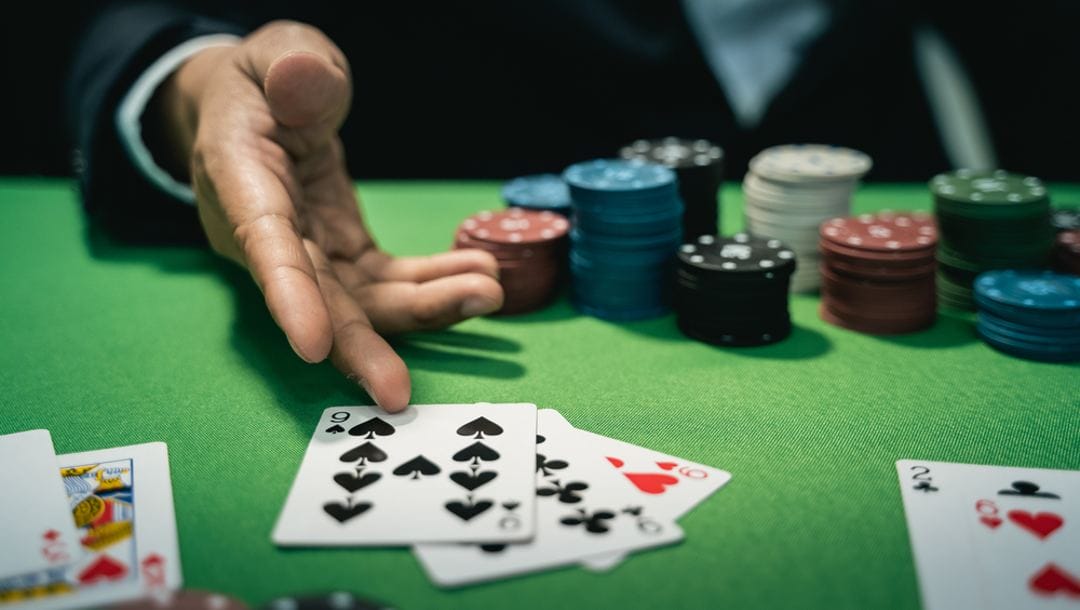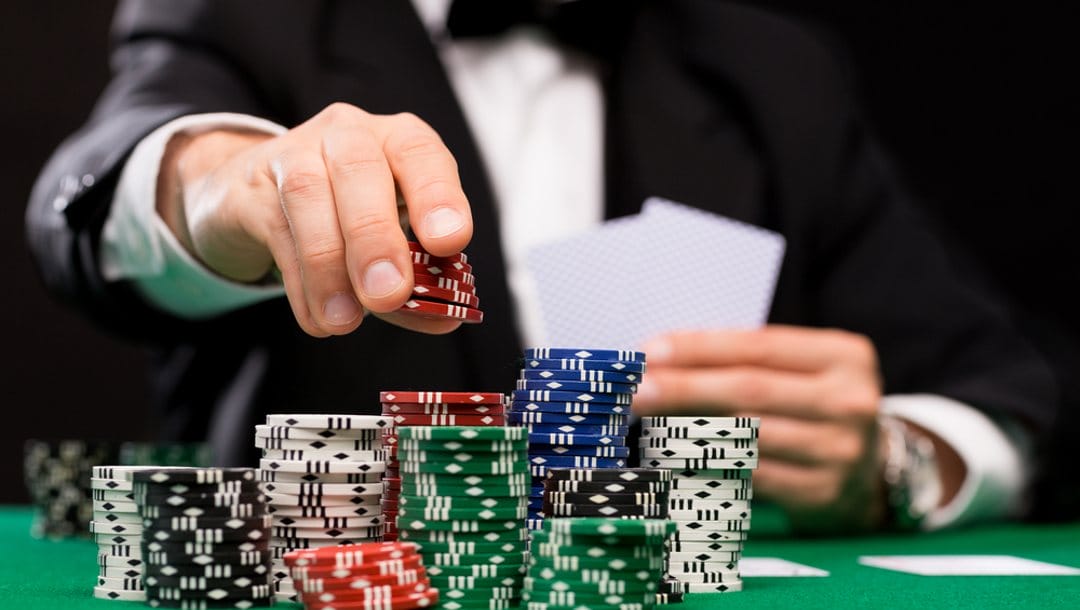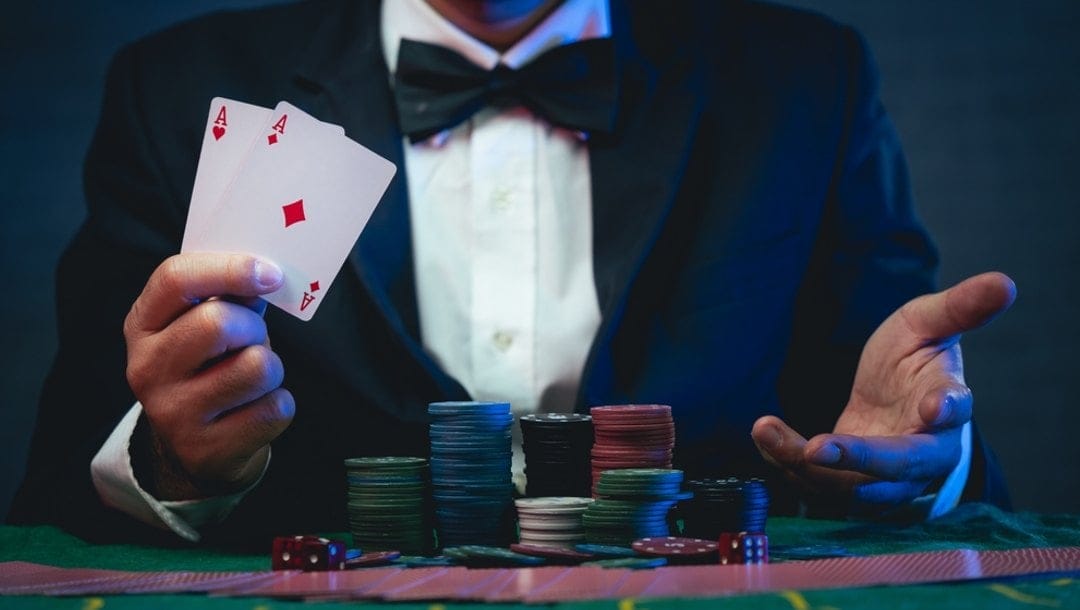Poker theory is fascinating. Whether you’re playing online poker or live poker in a tournament, there is so much psychology at play. When it comes to playing against passive players — those who hardly ever bluff — it may seem difficult to overcome their defenses, but in reality, you might have just hit the jackpot.
Read on to find out more about what it means to play passively and how to exploit passive poker players while also learning how to stop playing passively in poker tournaments yourself.
Understanding the Different Types of Poker Players
When playing live or online poker for real money, it’s vital to assess the psychological strategies used by different types of poker players. To decide whether a poker strategy is passive or aggressive, you need to analyze the risk tolerance of the player.
A passive or defensive poker player is scared of losing and avoids confrontation. This poker strategy involves a lot of checking and calling. Passive poker players hardly ever bluff and they don’t play very imaginatively. Many new players adopt this style of play to protect their bankroll, especially when they have marginal hands that can go either way. Frankly, they are a dream to play against because their actions demonstrate the strength of their holdings. An astute poker player can then place bets accordingly.
On the other hand, an aggressive or offensive player does not shy away from risk. This kind of player has a tendency to raise rather than call. This poker strategy revolves around betting and raising. You’ll find more experienced players tend to adopt an aggressive style of play.
Passive and aggressive poker playing can also be subdivided into a tight or loose poker playing style. A tight style indicates that players are only playing their best hands. Tight players often fold when they have a weak hand. A loose player has no such qualms. This player engages with a wide variety of hands and there’s a low incidence of folding.
Tagging Players
It’s important to analyze each type of poker player carefully at a live tournament or even when you’re playing poker online. Here are some useful tips:
- Is the player calling and checking frequently? If so, mark that player as passive.
- Is the player betting and raising more often than not? If so, it’s most likely an aggressive player.
- Is your opponent playing every hand? If yes, you’re dealing with a loose player.
- If your opponent hardly plays a hand and folds frequently, you have a tight player in your midst.
Now that each opponent has been labeled, here are some winning strategies on how to exploit passive poker players.
Winning Against the Tight Passive Player

These rather boring poker players, known as “rocks” or “nits,” offer hardly any action because they refuse to take any action themselves. They don’t play many pots, are prone to folding and they often call pre-flop with a strong hand. Sadly, there are frequently very few chips in the pot with such a player.
How often do tight passive poker players bluff? Hardly ever. This means they are very predictable. It may be hard to take their money because of their tight playing style, particularly when it comes to winning big pots. Luckily, you shouldn’t lose money to them either.
So here’s what you do as a part of your live poker strategy.
- Use your position at the table to force these players to fold. Early aggression will cause a tight passive player to back down if they have anything less than a great hand.
- However, when this type of poker player bets, you know it’s a strong hand and you need to play accordingly.
- Up your aggression and looseness to make them uncomfortable. This type of player looks for any excuse to fold. It’s easy to bluff them, as they play with a fear of losing. While this may mean you won’t walk away with big pots, by playing aggressive and loose, you are more likely to walk away with small pots more regularly, even if they are mostly just made up of blinds.
- If this player does choose to play, they probably have something of value as they will rarely bet with a weak or average hand. This means that it’s often a good idea to fold to avoid losing.
Winning Against the Loose Passive Player

This type of player plays too many hands, rarely raises and hates to fold, calling on weak, average and strong hands. They only tend to raise if they have an extremely strong hand. Plus, they get very attached to their hand and like to play the round to the very end. These players infrequently display aggression as their style of play is to let others take risks while they watch, but it also makes this style good against players who rely on bluffing too much. Many beginners employ this poker strategy and because they like to call a lot, they’re nicknamed “Calling Stations.”
So, here’s what you do with the loose passive player:
- Don’t bluff against these players. Loose passive players hate the idea of being bluffed and will call to satisfy their curiosity. They live to catch your bluffs. You can use this to your advantage, though. If you are caught bluffing, the loose passive player won’t fold to you again. This means you can win against them when you do have a good hand.
- When you have a winning hand, especially before the flop, make these players pay by raising aggressively. Remember, they have an inability to fold. Also, remember that when you bet bigger than them, these “Calling Stations” love to call so much that they won’t be paying much attention to the size of bets.
- Bear in mind that a passive strategy is a losing strategy unless executed just right. In general, if you want to continue in a hand, you want to be an aggressor.
Test Your Skills at BetMGM
Now that you’ve learned how to deal with two of the four types of poker players, grab the chance to test your poker skills and register with BetMGM. Play online poker for real money while enjoying a wide selection of live poker games and poker tournaments. Put your poker theory into action today when playing poker games online at BetMGM.










